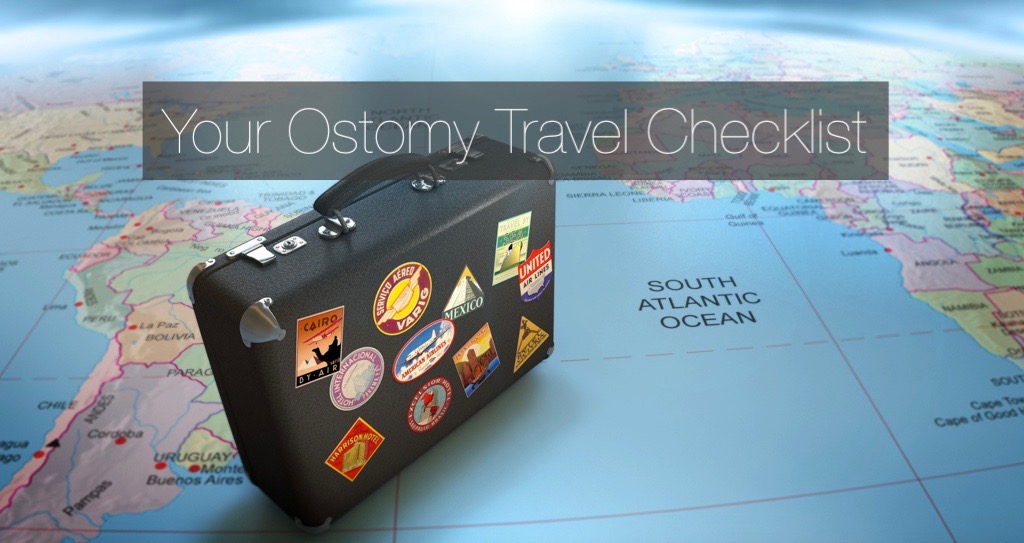Tips for Traveling with an Ostomy – Your Passport to Globetrotting Success
Traveling is one of the most important parts of many lifestyles. We’re not just talking about seven-day all-inclusive vacations here. We’re talking about real travel, the kind where you pick up at a moment’s notice and throw caution to the wind in wanderlust. If you count yourself amongst this globetrotting lot then you know the fear of having anything get in your way. Work schedules and personal budgets are one thing, but an ostomy, that’s a whole other consideration.
Thankfully, it doesn’t need to be the impediment you think it may be. Not at all. With the right preparation, traveling with an ostomy is akin to traveling with any common medical condition, if not easier. A trek to Mount Kilimanjaro with asthma? No so great. Doing the same with an ostomy? Sure, no problem.
Whether you’re planning a visit to Aspen or Zimbabwe, or throwing a dart at a map to let fate decide, the following tips will allow you to set sail, hit the road, or hop on a plane or rail, without a second thought.
Travel Preparedness Checklist for Those Living with an Ostomy
1. Inform and Receive Clearance from Your Physician
If you’ve been maintaining a healthy lifestyle since receiving a stoma and your check-ups have been fine, then there is nothing to worry about. Regardless, it is always a good idea to let your doctor know about your travel plans in advance, even if that advance is a few days (for those of you making a spur of the moment decision). That quick check-up will give you peace of mind and your doctor may help you remember something you may have overlooked in regards to your prescriptions or nutritional regime (more on these below).
2. Get a Doctor’s Note Regarding Ostomy Supplies and Prescriptions
If you will be flying and/or crossing an international border will also need a proverbial hall pass from your doctor. You know how airport security and customs agents can be. To some of their less-informed, your ostomy pouch and accessories many look like threats to homeland security. A simple note from your doctor stating the necessity of these items will ease their obtuse concerns. You will also need a note regarding your prescriptions to ensure that the same untutored agents don’t peg you as some sort of a smuggler.
3. Pack Extra Supplies, Prescriptions, and Supplements
Armed with your doctor’s note for all of the above, be sure to pack to account for more than your normal day-to-day ostomy supplies and prescriptions. Assume that you will lose your luggage. Are your ostomy needs covered for this? By packing under the “lost bag” assumption you will be prepared. This includes your prescriptions, an extra pouch, support belt, hygiene care, and all other necessary accessories. All of these should be added to your carry-on luggage.
Also pack nutritional supplements that account for common ostomy patient vitamin and mineral deficiencies by brands such as Metagenics. You never know what the food will be like at an uncharted destination, and thus you may not be able to get the nutrients that you normally do at home.
4. Make Sure Your Medical Insurance is in Order
Traveling without knowing what is and isn’t covered by your insurance plan is a bad idea. For those living with an ostomy, it can be downright disastrous. Contact your insurance provider and tell them exactly where you’re going, for how long (add on a few days grace period to account for flight delays, etc.) and ensure that they are fully aware of your condition. You may need to purchase additional travel insurance to cover contingencies. Make sure that all insurance documents match your the exact name, contact, and address on travel documents (passport, etc.) and credit cards to avoid further complications.
5. Research Medical Clinics, Facilities, and Resources in Your Destination
Even if a medical issue with your stoma is highly unlikely, it’s a good idea to know where medical clinics, hospitals and pharmacies are located in proximity of your temporary accommodations. The more rural or exotic the destination, the more you need to investigate. For example, if traveling to a remote island in South East Asia, learn the fastest travel routes and forms of transportation (taxis, motorized trikes, public transit, etc.) from your resort or hostel. Find out what the protocol is for medical emergencies. Do they have a 911-esque plan in place? Does the hotel provide assistance? Will practitioners and pharmacists only accept one form of currency? It’s smart for everyone who travels to know this information, but essential for anyone living with an ostomy.




